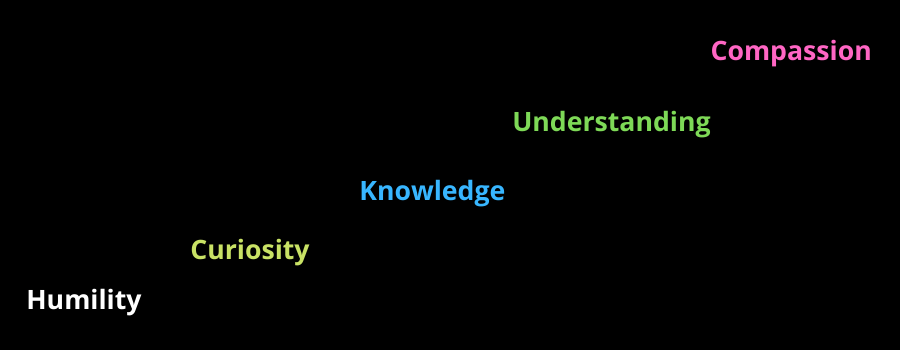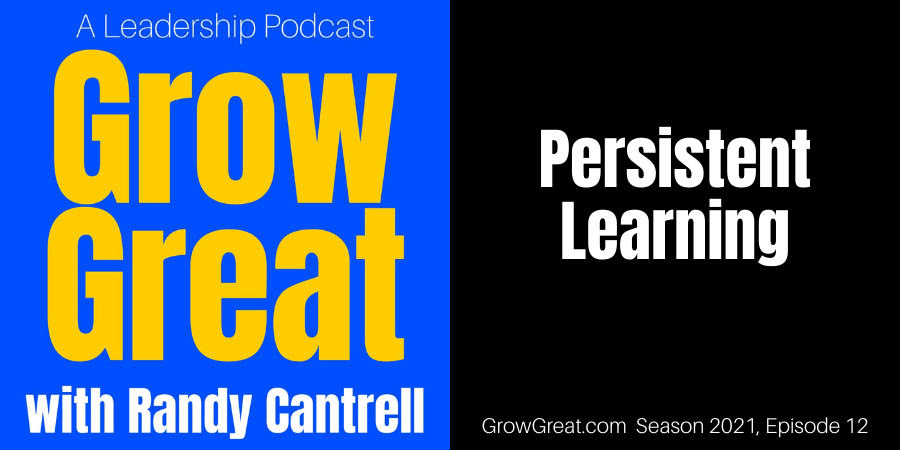Podcast: Play in new window | Download (Duration: 8:44 — 8.0MB)
Subscribe: Apple Podcasts | Spotify | RSS | More
Persistence is defined as:
• continuing firmly or obstinately in a course of action in spite of difficulty or opposition
• continuing to exist or endure over a prolonged period
Learning is defined as:
the acquisition of knowledge or skills through experience, study, or by being taught
High-performing organizations have a superior commitment to persistent learning. A relentless pursuit to figure it out. To closely examine what went wrong, not to assess blame, but to figure out what can be learned. To closely examine what went right, not to assess honor, but to figure out what can be learned.
Buffer.com published a report entitled, The 2021 State of Remote Work. I’d encourage you to review it and see what you can learn from it. For our purposes in today’s show, the persistent learning available due to this pandemic grows more evident every day. This is just one report, of many, that have come out of the changing nature of work and workplaces because of the pandemic. Organizations who never thought it possible to have remote work are finding that not only is it possible, in some cases, it’s vastly more efficient, resulting in happier employees. So it goes with learning. Sometimes it’s forced on us.
High-performing organizations don’t wait for external forces to impose learning. They look for opportunities at every turn asking seemingly naive questions. Questions others are too proud to ask. Or questions others may fear to ask. Persistent learning demands a fearless approach to asking questions. Intense curiosity.
The quality of our questions determines the quality of our decisions…and our actions.
Good questions push us to figure out better answers. High-performing groups and teams join forces in asking the questions. They don’t rely on any one person to bring curiosity to the challenge or opportunity. Everybody embraces curiosity. It’s contagious as collectively everybody is working to better understand.
The progression I have used for years has remained unchanged mostly because I’ve not found a better sequence to follow.

Persistent learning requires persistent humility and curiosity. It’s not a one-off, but it’s a lifetime habit.
Guage the level of curiosity among your group or team by measuring the questions that are asked before suggestions are offered. When you do, you may find that people leap straight away to a suggestion. “I think we should…” or “I’m in favor of…” That’s an indication of people who aren’t curious and may be disinterested in learning more so they can better understand.
For many teams, the lack of humility is manifested in self-centeredness. People can easily concern themselves with themselves. They know what they think should be done. They know their own opinions well and may tend to over-value their opinions as superior to all others.
If an opinion is truly high value, then rigorous questioning and discussion (even disagreement) will prove it more so. Defensiveness disrupts the process and stymies the learning. Humility affords us the opportunity to see if our opinions are right (or best), and to see how others may view them. Be courageous enough to be wrong and you’ll be more likely to be right more often (maybe). 😉
Persistent learning focuses on trying to figure out what we’ve yet to figure out…or trying to better figure things out we once thought we had figured out. It is NOT a procrastination tactic to avoid taking action. It’s NOT delaying so we can get our actions more perfect. It’s the realization (humility) that drives our curiosity to know more and to know it better so our understanding can deepen. The ultimate goal is compassion, which is basically being concerned about others! And now you may better understand why that’s important in building a high-performing team or group! It’s not about YOU. It’s about US.
Be well. Do good. Grow great.

 About the hosts: Randy Cantrell brings over 4 decades of experience as a business leader and organization builder. Lisa Norris brings almost 3 decades of experience in HR and all things "people." Their shared passion for leadership and developing high-performing cultures provoked them to focus the Grow Great podcast on city government leadership.
About the hosts: Randy Cantrell brings over 4 decades of experience as a business leader and organization builder. Lisa Norris brings almost 3 decades of experience in HR and all things "people." Their shared passion for leadership and developing high-performing cultures provoked them to focus the Grow Great podcast on city government leadership.
The work is about achieving unprecedented success through accelerated learning in helping leaders and executives "figure it out."
